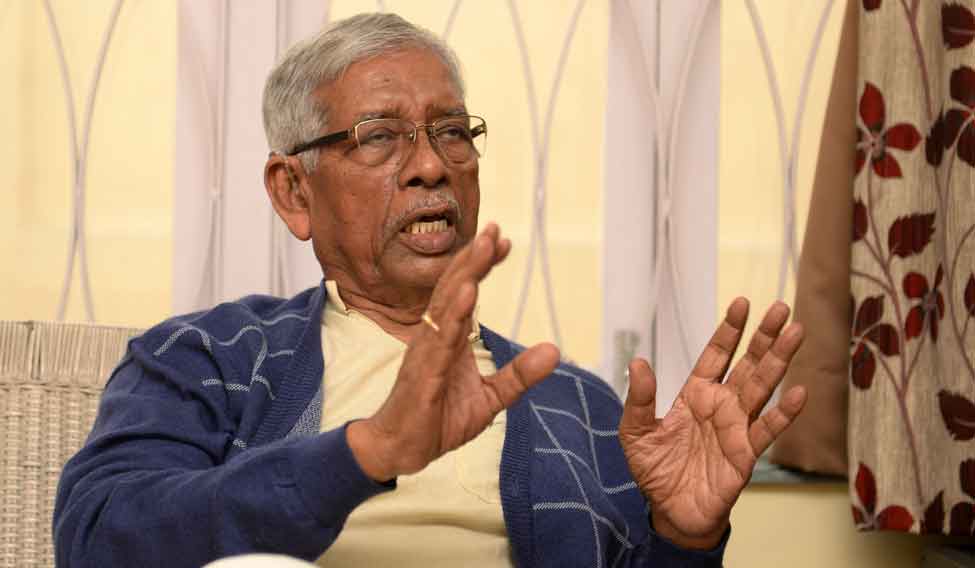When the peasants started their movement in Naxalbari, it received support from all quarters. The revolutionaries thought they would find support in the United Front government as well, as the CPI(M) was its key constituent. They, however, went overboard and the killings started. The CPI(M) did not tackle the situation in the right way. It did not take up land reforms, which was one of the reasons for radicals leaving the party and forming the CPI(ML).
Even before the CPI(ML) was formed, people from Andhra Pradesh and many Kashmiris joined the movement launched by Charu Majumdar. But the irony was that they formed the party without formulating any policy. Their idea was to annihilate class enemies. Attracted by it, students from Presidency College, Jadavpur University and other institutions headed for Naxalbari. But the students, belonging to the upper class, could not live with the peasants in Naxalbari. So 60 per cent of them came back.
When I was a student, I was very close to Charu’s aide Saroj Dutta. I came to know later through him that those who returned from Naxalbari had ruined their career options. So they called for abolishing the education system and killing political leaders. Soon, they started killing policemen. Charu did not suggest it, but other leaders forced him to accept it.
Charu had said that the revolution should end by 1975. He raised the slogan: ‘China’s chairman is our chairman’. An aura was created about China. If the Soviet Union had attacked China then, India would have supported China despite the India-Soviet bonhomie.
In the mid seventies, Naxalism died down in Calcutta. But Naxals started making inroads in Bihar and Andhra Pradesh. In Jehanabad in Bihar, Bhumihar landlords were attacked. They then built their own forces and started killing Naxals.
In 1991, the government privatised mines and started evicting tribals. The People’s War Group in Andhra Pradesh and the Maoist Communist Centre elsewhere took up their cause. Charu had not approved the use of firearms. But these Naxalites used it to fight corporates, who had government support. The tribals had no option but to support them.
I was part of the committee for tribal affairs, constituted by then prime minister Manmohan Singh. The government is yet to accept our recommendations—human development, land distribution and a law to check displacement. Unless one stems the rot, the problem would remain even if the government sends in the Army. The Maoists have a lot of local support. The government will have to isolate tribals from the Maoists if it wants to finish the danger called Maoism in India.
Samanta retired as director general, Intelligence Bureau, West Bengal Police, in 1993.
AS TOLD TO RABI BANERJEE






